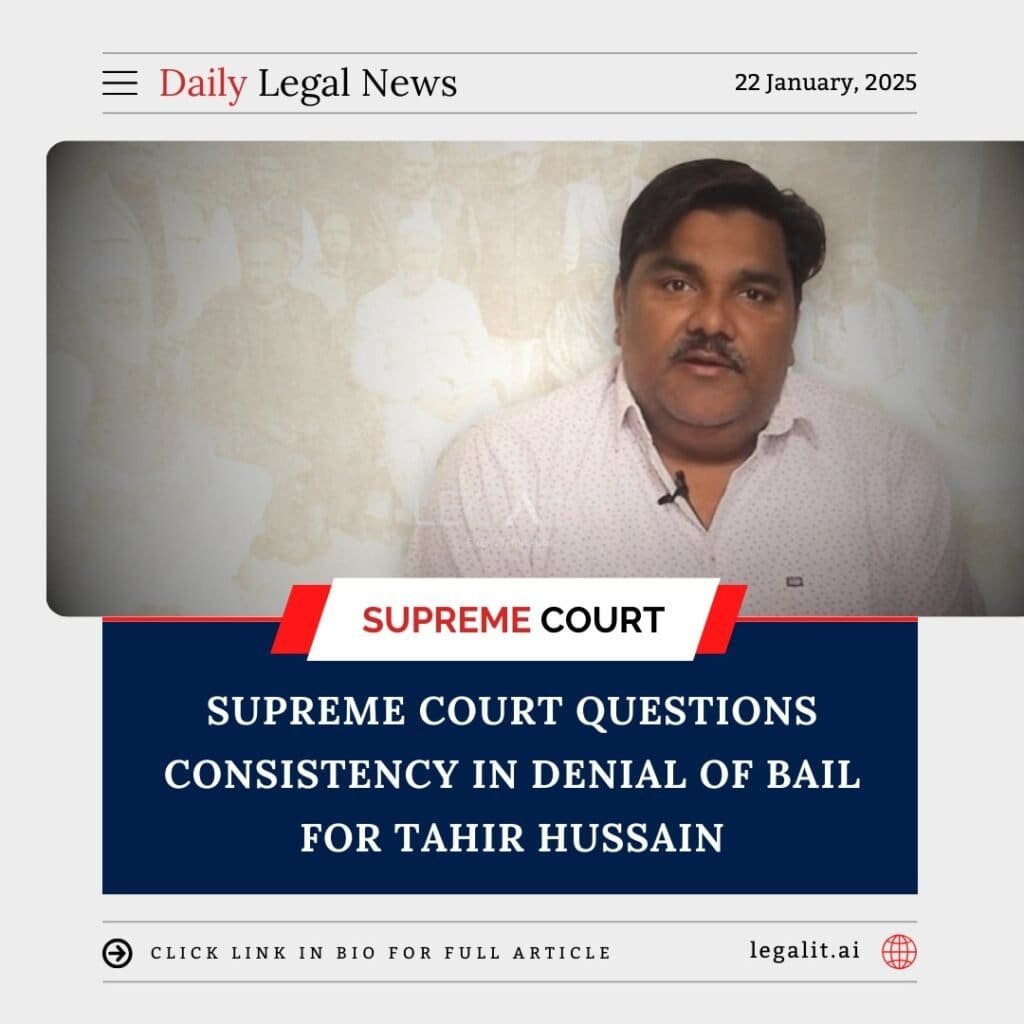
Background
The Supreme Court has expressed concern over the denial of bail to former AAP councillor Tahir Hussain, who has been incarcerated for over three years in connection with the 2020 Delhi riots. Hussain’s counsel argued that while he has been granted bail in nine other cases linked to the riots, bail was denied in one case, which allegedly pertains to similar charges.
The bench, hearing Hussain’s plea, sought to understand the rationale behind the differing treatment across these cases and questioned the consistency in judicial decisions concerning his incarceration.
Court’s Observations
- Consistency in Legal Principles:
- The bench remarked that legal principles must be applied uniformly, particularly when the facts and charges in the cases are similar.
- It questioned why Hussain should remain in custody in one case when he had been granted bail in others.
- Concerns Over Prolonged Detention:
- The court highlighted the issue of prolonged incarceration without trial, emphasizing the need to balance individual liberty and the gravity of allegations.
- It noted that such detention undermines the presumption of innocence unless proven guilty.
- Nature of Evidence:
- The bench sought clarity on whether the evidence in the present case was significantly different from the other cases where bail was granted.
- It directed the prosecution to provide a detailed explanation of the charges and evidence supporting continued custody.
Arguments by Hussain’s Counsel
- Parity in Bail: The defense argued that Hussain’s alleged role in the current case is no more severe than in other cases where he has already been granted bail.
- Judicial Fairness: The counsel underscored the principle of judicial parity, asserting that selective denial of bail undermines fairness and equality before the law.
Prosecution’s Stand
- Severity of Charges: The prosecution maintained that the case in question involves graver allegations, including Hussain’s alleged role as a mastermind in inciting communal violence.
- Risk of Tampering: It argued that granting bail could lead to the accused influencing witnesses or tampering with evidence.
Broader Implications
- Judicial Parity and Consistency:
- The case underscores the importance of uniform application of legal principles, particularly in matters of personal liberty.
- It also raises questions about the judiciary’s approach to balancing public interest and individual rights.
- Revisiting Bail Jurisprudence:
- The court’s observations may prompt a re-evaluation of bail jurisprudence to ensure consistency in decisions across similar cases.
- It also highlights the need for courts to provide detailed reasoning when deviating from established patterns.
- Impact on High-Profile Cases:
- The ruling could influence how courts handle bail applications in politically sensitive or high-profile cases, ensuring that personal liberties are not overshadowed by public outcry.
Conclusion
The Supreme Court’s scrutiny of the inconsistent bail decisions in Tahir Hussain’s cases serves as a reminder of the judiciary’s role in safeguarding individual rights. By seeking a detailed explanation for the denial of bail, the court underscores the need for transparency and consistency in judicial decisions. The final judgment in this case could set a significant precedent for balancing liberty and accountability in criminal proceedings.